Does eating bananas raise your blood sugar?
Thanks for the invite.
Sure.Eating bananas raises your blood sugar.. For sugar lovers who have diabetes or have high blood sugar, bananas can be consumed but not in excess. Banana belongs to the group of fruits thatThe sugar content of fruits is about 7~25%, which belongs to the food with high sugar content, and the sugar content of bananas is about 20%. Eating bananas will surely raise blood sugar, only normal people's blood sugar will be precisely regulated by insulin, and will quickly restore the stable value, but sugar lovers may eat more than one due to the sugar metabolism, which may have an impact on their blood sugar.。
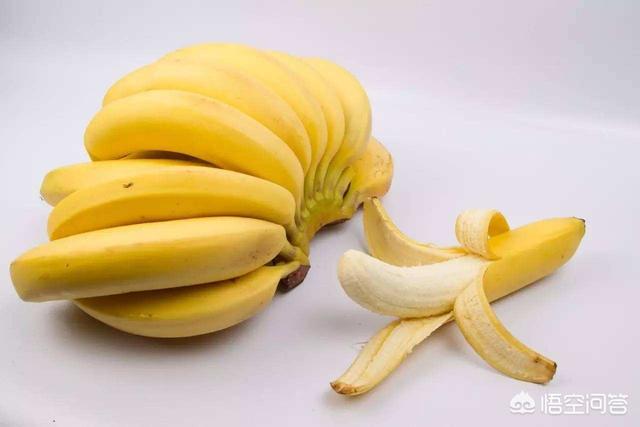
Although bananas will make blood sugar rise, but does not mean that sugar lovers can not eat bananas, suitable for sugar lovers and unsuitable for sugar lovers to eat can refer to the glycemic index (GI) of the food, which represents the food unit of time to make the speed of blood sugar rise, generally higher than 55 belongs to the high glycemic index of the food, the GI of bananas is 30, belongs to the lower glycemic index fruits, in fact, suitable for sugar lovers to eat, the first is because bananas are rich in dietary fiber. Dietary fiber, there is a certain ability to control sugar, in addition to the sugar in the banana is mainly fructose, fructose has less impact on blood glucose, so comprehensively, theSugar lovers eat some bananas appropriately actually have little effect。
For sugar lovers, though, there's no problem with eating bananas, thoughBut it's also best to try to choose a period when your blood sugar is smoother to eat, and try to eat between meals when your blood sugar is lower, to prevent hypoglycemia and to get some energy and nutrients with a lower impact on your blood sugar.In addition, for ordinary friends, fruit, although rich in water-soluble vitamins, dietary fiber and other components, but not more good, dietary guidelines recommended daily intake of fruit per person 200 ~ 350g, probably the amount of two apples.
Banana belongs to high-calorie fruit, according to analyze banana contains high energy, 1 banana (edible part 89.0 grams) contains calories 81 calories, so eating banana if you do not control the intake, it will lead to calorie overload. However, bananas are high potassium fruits, and regular consumption can regulate blood pressure, which can protect blood vessels and prevent cardiovascular and cerebrovascular diseases. But for diabetics who need to strictly control their diet, can they eat bananas?
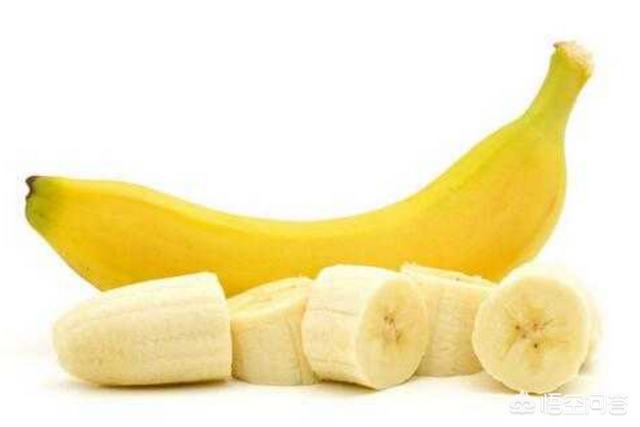
Generally speaking, bananas contain up to 20% sugar, and the sugar content may be even higher if they are ripe. Sugar lovers need to be careful with the choice, patients with better blood sugar control can consume a small banana or half a large banana, while patients with poor blood sugar control is best to choose not to eat. And in the time of consumption, many patients often have no contraindications.
In fact, the best time for diabetic patients to eat fruit is to choose between two meals, so that blood sugar is not too high, but also to prevent hypoglycemia from occurring. Eating fruit before meals will affect normal meals, while eating fruit after meals will lead to a one-time intake of sugar and energy is too high, increasing the burden on the body. Therefore, it is generally considered best to consume fruit at additional meal times, i.e., 9 to 10 a.m., 3 to 4 p.m., or within two hours before bedtime.
On the other hand, banana, as a relatively common fruit with high potassium content, contains 472 mg of potassium per 100 grams of banana, and diabetic nephropathy, as one of the most common chronic comorbidities in diabetic patients' clinics, has poor excretion of potassium by the patient's kidneys. Once the excretion is not timely, high blood potassium, will be harmful to the patient's body, and even life-threatening, so for this kind of patients should be appropriate to limit the high potassium content of fruits. Fruits with high potassium content also include dates, peaches, pineapple honey, apricots, blackcurrants and red fruits, etc. Patients should be careful when choosing these fruits.
Sugar man health network, a temperature control of sugar platform, welcome to pay attention to the questions and answers!
会

The dietary glycemic index is used to measure the effect of carbohydrates in food on blood glucose concentrations.
Foods with a high glycemic index are digested and absorbed quickly after entering the gastrointestinal tract, glucose is released quickly, and glucose enters the bloodstream at a high peak, which means that blood sugar rises high.
Among fruits, bananas had a high year-on-year glycemic index of52。
This is something we're going to have to talk about specifically in terms of what affects blood sugar.
For normal people, blood sugar may not rise with bananas, and if it does, it will be within the normal range.
Let's look at whether or not eating bananas will raise your blood sugar for sugar lovers.
There are several factors that affect blood glucose in diabetics; glucagon is diet and glucagon, and hypoglycemia is exercise, medications, and insulin.
catering
That is, bananas contain 20.8 grams of carbohydrates per 100 grams ("sugar" in the mouth of sugar lovers), the carbohydrate content is relatively high. According to 1 gram of carbohydrates can raise 0.17-0.22mmol/L blood sugar, a banana contains 18.4 grams of carbohydrates, which is very destructive to blood sugar.
campaigns
Exercise has a hypoglycemic effect if you have previously engaged in strenuous exercise. If this effect is balanced with the glycemic effect of the banana, then the blood sugar will not rise. If the glycemic effect of the banana is high, the blood sugar will rise.
veterinary drug
If you injected insulin before you ate the banana, insulin has a hypoglycemic effect. Whoever has the peak of it and the banana's glycemic effect is the dominant effect.
hormones
All hormones in the body except insulin are glucagon, and if you are in a state of stress such as a fever, your blood sugar will also rise.
To summarize, whether a diabetic's blood sugar rises after eating a banana or not, other effects such as exercise, medications and hormones have to be considered.
If you have any questions, you can leave them in the comment section and I'll reply when I see them~
The above answer is provided by Ms. Song Mingyue, a registered dietitian of MicroSugar
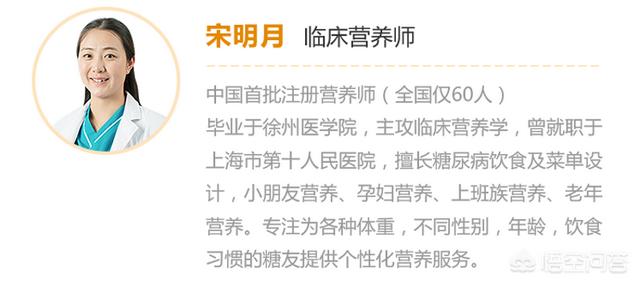
Follow us on Microsugar - Smile in the Face of Diabetes
Bananas contain up to 21% sugar and are dominated by monosaccharides such as glucose and fructose, which cause a rapid rise in blood sugar. In addition, bananas are high potassium fruits, which will aggravate the kidney burden of diabetics.
Therefore, it is better for diabetics not to eat bananas.
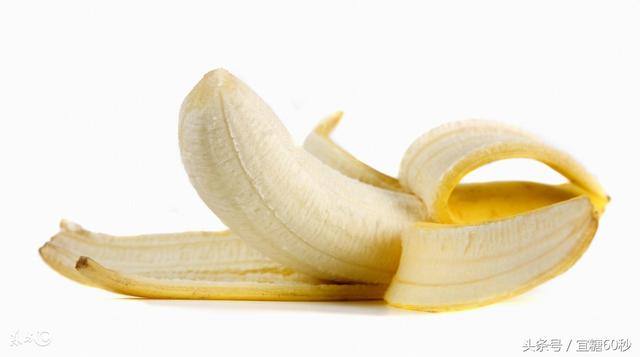
Bananas are sweet and cold in nature and are not suitable for everyone.
Unsuitable for.
Arthritis and diabetics: Bananas are high in sugar, which slows down blood circulation and builds up metabolites, making them unsuitable for arthritis and diabetics;
Nephritis patients: the filtering function of nephritis patients is relatively poor, bananas contain a large amount of potassium and magnesium, which will make the proportion of calcium, potassium and magnesium in the blood out of proportion and aggravate the kidney disease, so it is better for kidney disease patients not to eat bananas;
Cold body: banana cold, cold body is best to avoid, swollen feet of pregnant women are also best not to eat.
Suitable for.
People with hypertension, coronary heart disease, arteriosclerosis;
Suitable for people who have consumed too much alcohol and have not yet recovered from the alcoholic effect;
Upper gastrointestinal ulcers, tuberculosis, persistent dry cough;
Fever, dry mouth and thirst, constipation, hemorrhoids, anal fissure, blood in stool.
For more, feel free to read~~
Blood sugar, what's the right level to control?
Glycated hemoglobin, what is the average blood sugar represented?
How many diabetic staples do you eat? Choose 2 servings as they are, it's easy to do!
Banana is a common fruit in daily life, soft and sweet, very popular with the elderly and children. A lot of diabetics talk about fruit, are wanting to eat not dare to eat, especially for bananas this very sweet fruit, but also worry, worried about eating will cause blood sugar spike, then eat bananas blood sugar will rise?
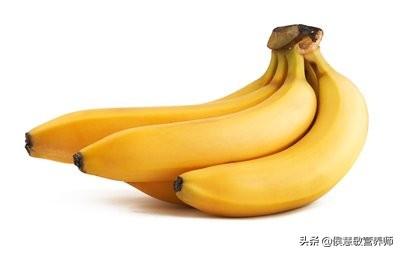
Fruits are sweet because they contain a lot of sugar such as fructose, sucrose and glucose, and since they contain sugar, eating them will definitely raise your blood sugar. Not only fruits, but also food contains energy, more or less will have an effect on blood sugar. So can diabetics still eat bananas?
Bananas have a glycemic index of 52, less than 55, which is a low glycemic index food. The glycemic index is a reference index for many diabetics when choosing food. People with high blood sugar should try to choose low glycemic index foods, where the food is digested slowly and glucose is released slowly, which has a relatively small effect on blood sugar.
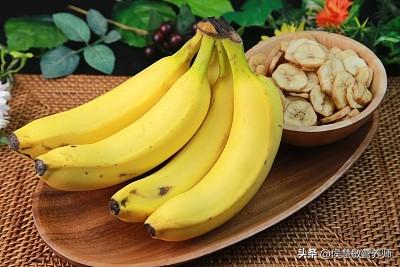
But bananas have a high sugar content of about 20%, which is high among common fruits. For diabetics, when choosing fruits, try to pick varieties that are low in both glycemic index and sugar content, which may be kinder to blood sugar.
Therefore, banana is not a very suitable fruit for diabetics, you can choose some apples, pears, grapefruit, peaches and other fruits if you want to eat fruits.
But this is not to say that diabetics can not eat a bite of bananas, bananas and contain the same carbohydrate content of fine staple food compared to the impact on blood sugar is still smaller, and which is rich in dietary fiber, vitamins, minerals, etc. on the body also has certain benefits. Only try to eat between meals, when the blood glucose value is relatively low, but also diabetics are easy to hungry, and when eating to control the amount, do not eat too much, eat one-third to half a root can be, eat too much easy to quickly raise blood sugar.
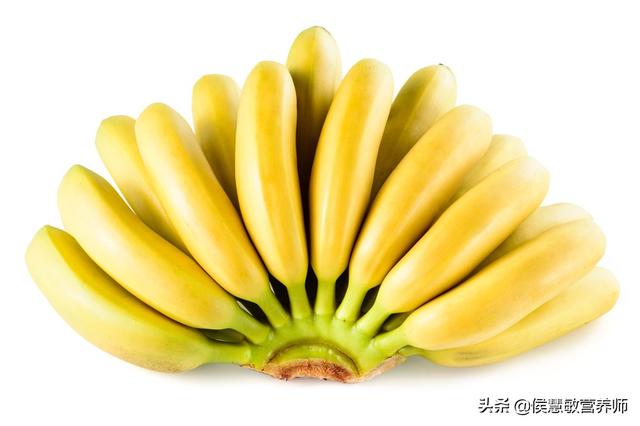
Diabetic patients should also choose fruits according to their own situation, because, everyone's physique, digestion and absorption are different, and the reaction to food is also different. After eating, we should monitor the changes in blood glucose by ourselves, and adjust the types of fruits and the amount of consumption according to the blood glucose reaction, in order to better control the blood glucose level.

To clarify this issue, we need to first understand a concept, that is, "Glycemic Index (GI)" WHO definition of GI: Food GI refers to the ratio of the area under the blood glucose response curve after eating a food to be measured containing 50 grams of available carbohydrate to the area under the blood glucose response curve after consuming a standardized reference food containing the same amount of carbohydrate. It reflects the degree of change in blood glucose after consuming a certain amount of food, and can also be simply understood as the degree to which a food raises blood glucose.
The determination of food GI is done on the basis of a large number of human trial food tests, so GI can reflect the real situation of the human body, that is to say, although there are some differences in the GI value of food produced in different countries and regions, but in any case the general trend of food GI is the same, so we can judge the effect of food on blood glucose according to the GI value of food.
Foods with a GI greater than 70 are high GI foods
Foods with a GI of 55-70 are considered medium GI foods
Low GI foods with a GI of less than 55
We know that the GI of ripe bananas is 52 and that of raw bananas is 30 from the Chinese Food Composition Table.
For patients who are already diabetic, it is recommended that under the premise of a balanced diet and control of total energy throughout the day, try to choose foods with a lower glycemic index, then according to the GI value of bananas it is not difficult to find out that both raw bananas and ripe bananas it belongs to the low GI food, so in the case of moderate consumption of bananas to elevate blood glucose is not high (of course, this also depends on the amount of food that you eat at one time)
Bananas are rich in vitamins and minerals, with particularly high levels of potassium and magnesium (one medium-sized banana contains 451 milligrams of potassium). Potassium prevents blood pressure from rising and muscle spasms, while magnesium has a fatigue-eliminating effect. Bananas are also good for digestion and absorption. Diabetic patients, especially those with diabetes combined with high blood pressure, can still eat bananas under the dietary principles of balanced diet and moderate control.
(Author Zhou Yanli National Level II Public Nutritionist/Executive Director of Liaoning Provincial Nutritionist Association/President of Liaoyang City Health Management Society)
Does eating bananas raise your blood sugar? The answer is yes it will.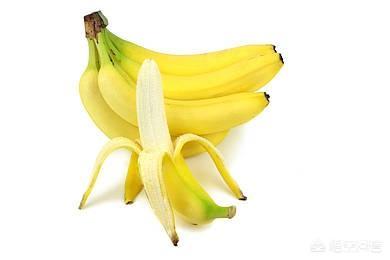
Bananas contain up to 21% sugar and are dominated by monosaccharides such as glucose and fructose, which can cause a rapid rise in blood sugar. In addition, bananas are high potassium fruits, which will increase the burden on the kidneys of diabetics. Therefore, it is best for diabetics not to eat bananas.
Bananas are sweet and cold in nature and are not suitable for everyone.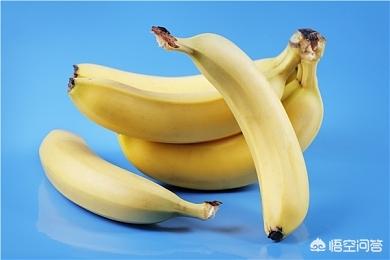
Unsuitable for.
1, arthritis and diabetes: banana sugar content is relatively high, will slow down blood circulation, metabolite accumulation, not suitable for arthritis and diabetes.
2, nephritis patients: nephritis patients with poor filtration function, bananas contain a large amount of potassium, magnesium, will make the blood calcium, potassium, magnesium ratio imbalance, aggravate kidney disease, so patients with kidney disease is best not to eat bananas.
3, cold body: banana cold, cold body is best to avoid.
[I hope this answer can help you, click on the upper right corner of the "attention", you can view more physicians answer or free to ask the doctor questions].
As research into the relationship between blood sugar and food gets deeper and deeper, the effects of many ingredients on blood sugar are becoming more and more refined. Last year a team of researchers in Israel found that everyone is different about how much food raises blood sugar, most people have the impression that bananas are fast blood sugar-raising foods, but a part of the study found that the opposite is true, and that they are ideal foods for diabetics.
Food intake is individualized for each person. If your blood sugar control is not ideal, we recommend that you check your fasting blood sugar and postprandial blood sugar of your three meals every day and keep track of the ingredients of your three meals for a week, and I believe that you will find out if bananas are an ideal ingredient for you and what your ideal recipes are!
Fruit is a great temptation for diabetics. However, diabetics should not eat too much, and those with poor blood sugar control are advised not to eat them. The carbohydrate content of fruits ranges from 4% to 20%, with watermelon being low and bananas being high. Fruit contains too much glucose, after eating will be directly absorbed into the blood can make blood sugar quickly climb high, the patient's blood sugar control is not favorable. Thank you for the invitation, thank you and please follow me in the headline platform has a similar Q&A, thank you!
This question and answer are from the site users, does not represent the position of the site, such as infringement, please contact the administrator to delete.